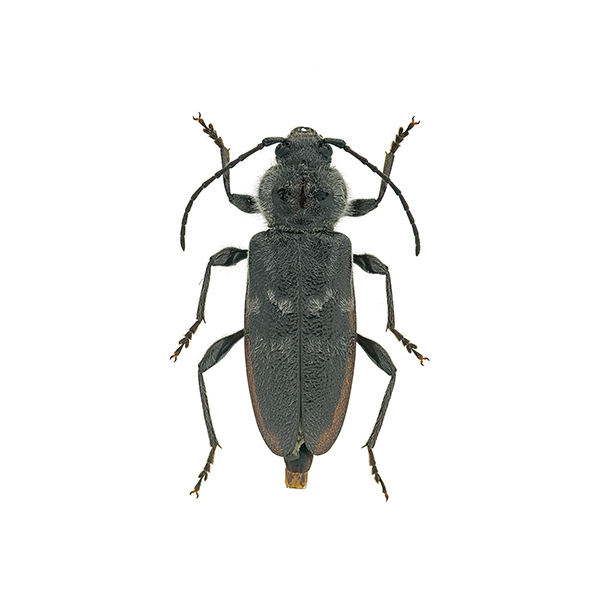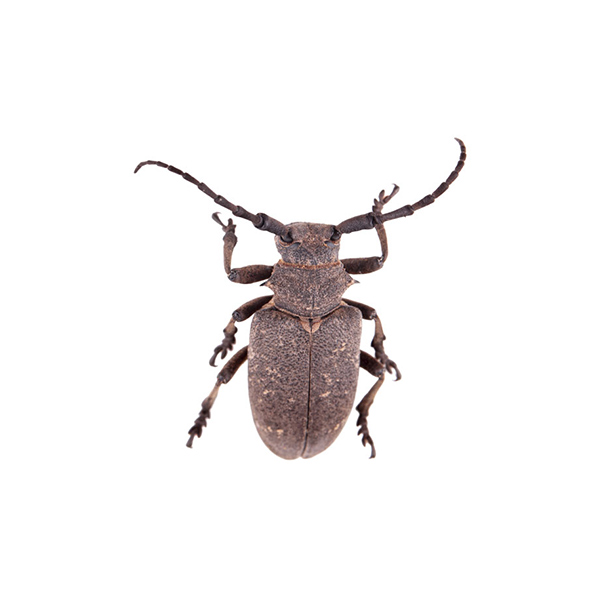Old House Borer Beetles in Santa Fe and Albuquerque NM
Old house borer beetles are typically a dark gray to a black color and have long antennae that are sometimes longer than the slightly flattened body. They have small gray hairs on the thorax as well as patches of gray hair on the wing covers. The prothorax behind the head has two raised and shiny black bumps. That said, it is important to know the identifying factors of the larvae, which are typically the stage in which old house borer beetles are found. The larva is an off-white color with a bigger head capsule that is dark brown in color, on which three simple eyes can be seen when viewed from the front. They range in size from 3/4″–1 5/8″.
Old House Borer Beetle Habitat
In the adult stage, old house borer beetles emerge from infested wood in the late summer months and mate. The female finds cracks in untreated wood to lay up to 200 eggs inside of, which only takes a week to hatch. After hatching, the larvae bore into the wood surrounding them and continue to feed until they reach a certain weight, which can take anywhere from 2–15 years. Once they’ve matured, they make their way to the surface, carving tunnels in the wood that leave oval-shaped holes and contain frass. After emerging from the wood, they will only live for up to 15 days once they’ve mated.
As mentioned previously, old house borer beetles seek out softer woods, which is why they are attracted to lumber found in lumberyards. Most people don’t realize the lumber used to build their house is infested until they notice the exit holes or hear the characteristic clicking noises of the larvae boring.
Old House Borer Beetle Behaviors, Threats, or Dangers
Tunnels that are created by the larvae can inevitably weaken structural timbers, making old house borer beetles a threat to any building they inhabit. Luckily, infestations typically remain localized and can be dealt with. If a property is heated centrally and doesn’t have moisture problems from ventilation or poor drainage, infestations can be treated and reinfestations are unlikely. That said, areas of a property with a high humidity level may be more prone to re-infestation and are thus susceptible to more damage.
Say Goodbye To Old House Borer Beetles. Get Started Today!





